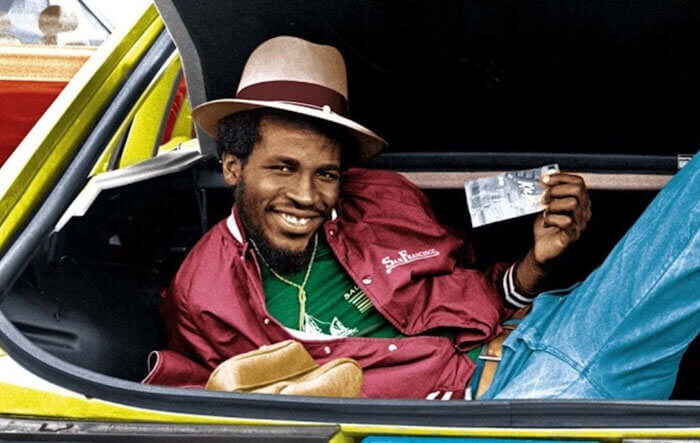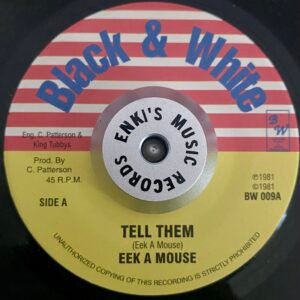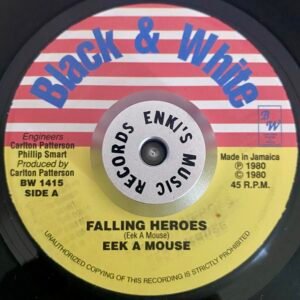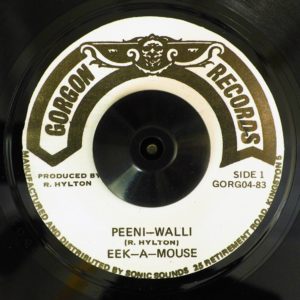Eek-A-Mouse was one of the first artists to be described as a “singjay” thanks to his unmistakable style that mixed singing and deejaying. He created a sensation in the dancehall scene with his bizarre, humorous, and original style, and he was one of the most unique reggae talents to emerge in the 1980s.
Eek-A-Mouse was born Ripton Joseph Hylton on 19 November 1957 in Kingston, Jamaica. He started his career as a cultural roots singer in the mid-1970s, when he was still in college and released some singles like “My Father’s Land” and “Wicked Shall Not Reign”. In the following years, Ripton continued DJing for different sound systems while releasing occasional singles under his real name.
His friends, though, called him Eek-A-Mouse, which was the name of a racehorse upon which he frequently lost money. Allegedly, the only time that Ripton decided not to bet on that horse, Eek-A-Mouse won.
In the late 1970s, Ripton Hylton worked briefly with the Papa Roots, Black Ark, Gemini, Jah Life, Black Scorpio and Virgo sound systems. He adopted Eek-A-Mouse as his official stage name in 1980 when he worked with Joe Gibbs on “Once a Virgin”, which turned out to be a significant hit. It was followed by the singles “Modelling Queen” and “Wa-Do-Dem”, but the latter was considered too controversial for radio airplay.
Following his first album, “Bubble Up Yu Hip”, which was produced by Linval Thompson, in 1981 Eek-A-Mouse joined forces with producer Henry ‘Junjo’ Lawes and remixer Scientist. “Virgin Girl” and “Noah’s Ark” were among his successes, backed by the Roots Radics. But most notably, Eek-A-Mouse had another go at “Wa-Do-Dem”: this time, he hit the jackpot thanks to the song’s unusual sound and original bubbling style. The toaster was the protagonist of that year’s Reggae Sunsplash and released the holiday hit “Christmas A-Come” by the end of 1981.
Eek-A-Mouse had many smash hits in the following two years, including “Wild Like a Tiger”, “For Hire and Removal”, “Do You Remember”, “Ganja Smuggling” and “Operation Eradication”. The latter was inspired by the tragic vigilante killing of close friend and fellow DJ Errol Scorcher. Some of his remarkable albums released between 1981 and 1984 were: Wa-Do-Dem, Skidip!, The Mouse and the Man (produced by Linval Thompson and backed by the Roots Radics), and Mouseketeer (produced by Junjo Lawes).
Between the mid-80s and early-90s, Eek-A-Mouse started focusing on his international audience, which was found mainly amongst rock fans in the USA and UK. Among his relative successes were the single “Freak” and the U-Neek album (1991, Island label), which mixed reggae and rock.
After appearing in the 1991 gangster movie New Jack City, in which he played a drug-dealing Rastafarian, Eek-A-Mouse continued to tour almost constantly throughout the end of the 90s and into the millennium. He occasionally released albums, including Black Cowboy (1996), Eeeksperience (2001), Eek-A-Speeka (2004), Eekziled (2011) and Give it to them (2016).
Sources:
Jo-Ann Greene on allmusic.com
reggaeville.com




